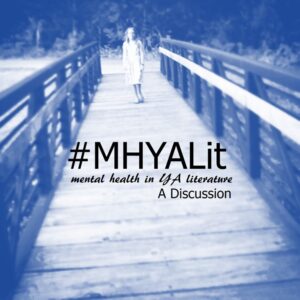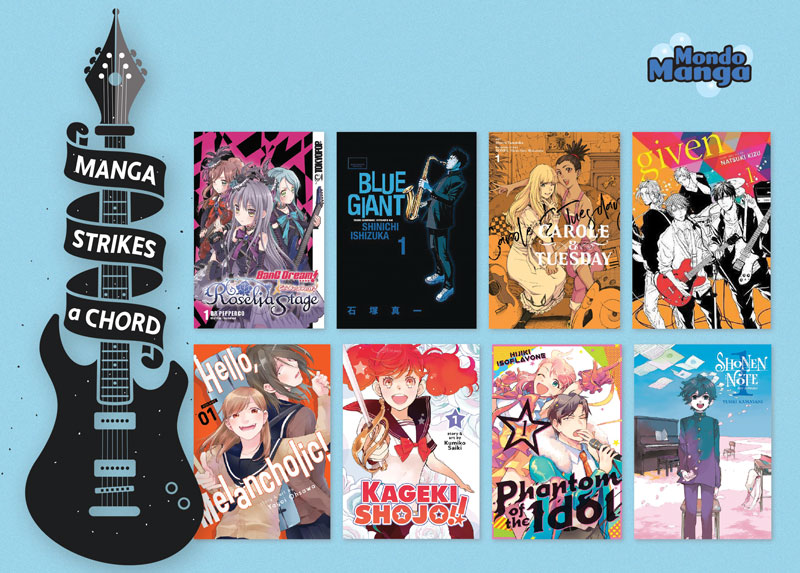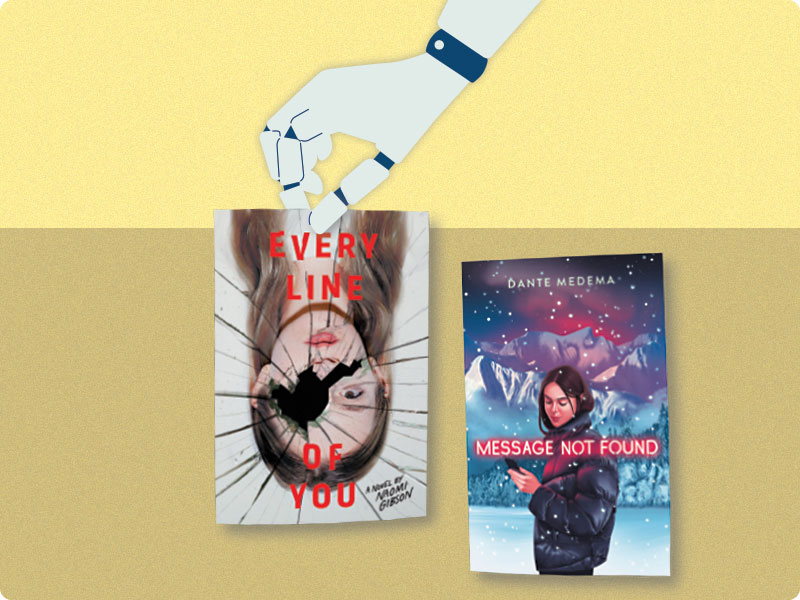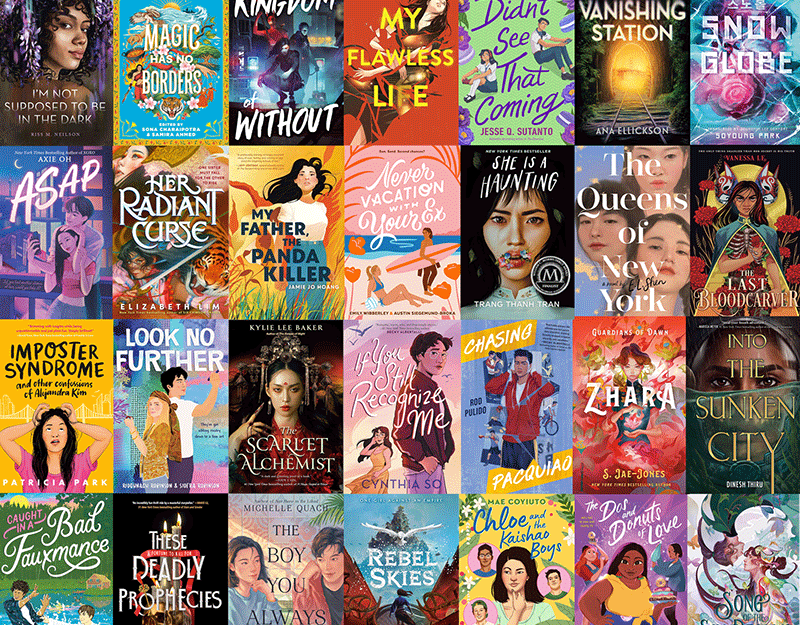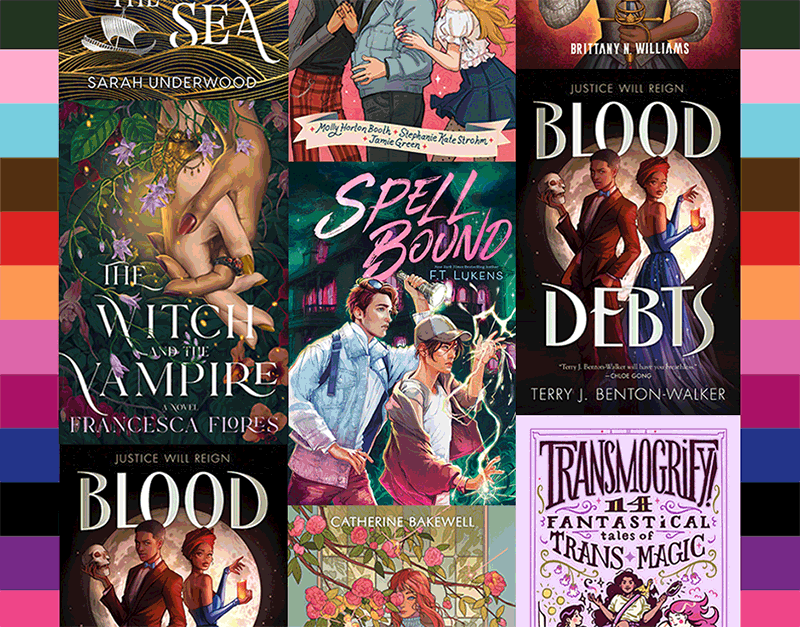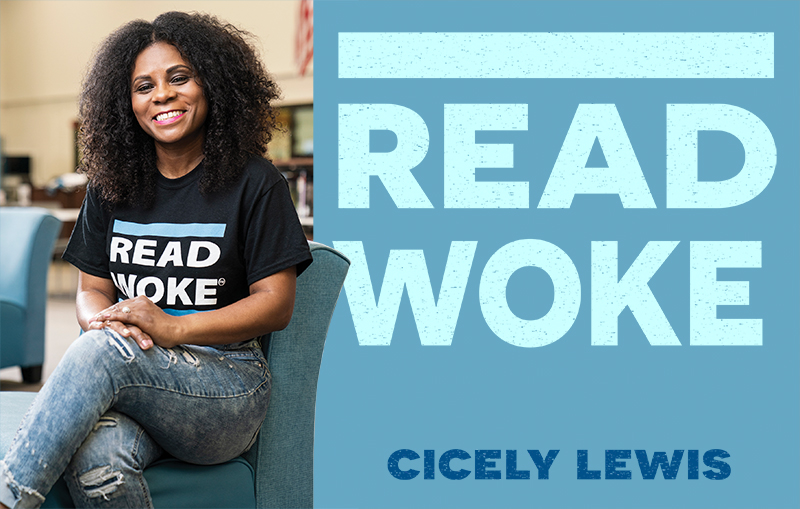#MHYALit: PANIC: WHAT FEAR FEELS LIKE by author Tom Leveen
Today as part of our #MHYALit Discussion we are honored to host author Tom Leveen. This is his first of two posts that will appear, tomorrow he discusses PTSD. We will have a new post every week day in January on the topic of Mental Health in YA Literature and the life of teens.
Past midnight. One year out of high school. Four guys—or was it five?—came walking out of the darkness of the apartment complex toward my friends and I in the parking lot, and I instantly knew something was wrong. Instinct is a real thing. Instinct warns you that something ain’t right.
ADVERTISEMENT
ADVERTISEMENT

There were four of us that night, too. But when the group of guys attacked us, they attacked as a swarm. They surrounded and knocked down one of my friends first. Then another. Then me. Then another friend who’d come racing down from his apartment to find out what was going on.
“What was going on” was we were getting the crap beat out of us.
Why?
I wish I knew. The group of guys called us no names, took no money, made no other threats. Apparently, they were just a group of young guys like we were and wanted to get into a fight. They found us. They won. It was the first fight I’d ever been in. I was nineteen.
And it was no big deal. Actually, I felt kind of tough afterward. I’d been in a fight and lived to tell about. Kinda cool!
A few months later, I found myself stranded in a college parking lot alone, late at night, after work. My car wouldn’t start. I had to walk back into the campus to find a pay phone (no cells back then!) then walk back to my car to wait for AAA to come give me a jump start.
That’s when a car-load of guys tore into the parking lot, saw me, and sped at me. They drove in circles around me, screaming out the windows, “We’re gonna kick your ass!”
Why?
I wish I knew. They were just a group of young guys like me. . . well, you can probably see the pattern developing, here.
The funny part is, they didn’t touch me. Apparently, they were just “kidding around,” because they drove off and left me alone. I didn’t get hurt at all that night.
Physically.
When I got home, though, I fell to the floor of my room in ball, and shook, and struggled to breathe, and couldn’t see or hear very well, and thought for sure I was having a heart attack, stroke, and stomach flu all at the same time. I do not know for how long I sat there crouched into that little ball.
And after that night, I didn’t leave my house again for about five years. I had newly developed panic disorder, and it was here to stay for awhile. I missed years of my early twenties by being in self-imposed lock-down, refusing to step foot off my property after the sun went down. Even with the sun up, I had only a few select “safe” places I could go. Walking to a Walgreens on the corner of my street was an exercise in utter terror. I only managed it one time in those years. One year, I missed my own birthday party being thrown for me by my friends because I refused to leave my room. I pretended to be asleep when people came to the house looking for me.
I lost friends. I lost girlfriends. I planned to move to a small town in Utah where “it’s so much safer!” Of course, I was too scared to actually drive that far, though, so that plan didn’t really materialize.
So when I wrote the opening chapter to my novel SHACKLED, which begins like this:
Like a heart attack. That’s the best way to describe it. I’ve never had one of those, that I know of, but I’m pretty sure it feels just like that. … My heart wasn’t beating fast anymore. Instead it beat hard, and that was almost worse. Like my heart wasn’t pumping so much as knocking from the inside, bam! bam! bam! Let me out!
I knew what I was talking about.
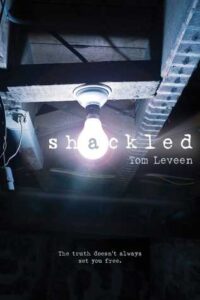
The plot of SHACKLED follows Pelly, a teen girl who has both post-traumatic stress disorder (PTSD) and a panic disorder resulting from the kidnapping of her best friend, Tara, six years previous. When Pelly becomes convinced she sees Tara—and Tara’s kidnapper—at a coffee shop, and when the police seem powerless to help, Pelly decides to face her fear head-on and track down Tara on her own. What she finds at the end of her journey is much worse than any of her panic-induced fears could have dreamed up.
But that’s the plot. The theme is about a young person with a crippling mental and emotional scar that interferes with her day-to-day life to the extent that she can no longer attend school. Her family doesn’t know how to help. She’s tired of the medications she’s been put on. Her entire life has been upended as a result of fear.
Maybe you know what that’s like. Maybe you know someone who does.
All of these aspects are drawn directly from my own experience. When Pelly tells David, the friendly co-worker she talks into helping her, that:
“I’m not claustrophobic, but that feeling? Like everything’s closing in on you . . . that’s me, every day. For years. That’s why I ended up in the hospital. I’d have these moments of being okay, but then I’d have these epic breakdowns. Go totally mental, or totally paralyzed.”
That’s basically a quote from my own journal.
Panic attacks strike people at all ages and all times. There is no one cause. For example, you could board a plane to Tahiti, have a great flight, enjoy a wonderful vacation, then find you can’t get on the plane home due to an overwhelming sense of panic. In my case, I returned to the apartment complex where we got jumped less than a week later, with no panic at all. It wasn’t until that second incident in the college parking lot that I got hit with the panic attacks.
Why?
I wish I knew . . .
People who’ve never had a panic attack find it hard to understand. People who get them find it hard to explain. It’s a pretty vicious cycle of confusion on both sides, and frustrating for everyone.
The thing I want you to know, and that I hope I addressed in the novel, is that there is a world of difference between being scared and being afraid.
“Scared” is good. Scared is an adrenalin dump that prepares us to fight, flee, or freeze. Scared can save your life. I was scared the night we were attacked, the instant I saw those guys walking toward us. Something in my brain said This is a bad situation, and I got scared.
“Afraid,” on the other hand, is a way of life.
Afraid is a lens, the only lens, though which you see the world. Everything around you becomes distorted. All your decision-making begins with How can this hurt me? What classes you take, where (or if) you go to school or work, who you date . . . it all passes through the lens of fear, and no one should have to live like that. Your defenses are always up, and your physical health starts to suffer. Some of us even start to hurt ourselves just to feel something other than that. I know I did.
It’s okay to be scared. Being afraid has already cost me years I can never have back.
If you are afraid, know that you’re not alone. If you haven’t gotten professional help, please do. I’m a veteran of a number of fine psychiatrists, psychologists, meds, and a hospital stay, and I am telling you there is nothing at all wrong with seeking help.
I don’t recommend chasing down alleged kidnappers or taking yourself off your meds without talking to your doctor, the way Pelly does. Those are fictional bad decisions made by an imaginary character. You’re a real person with a real life to live. It will take time to find the right combination of doctors, support, and/or medication to get you where you want to be, but you can get there.
And if there is a very good reason that you are afraid . . . if there is something happening or that has happened in your life to cause that fear . . . I understand that, too.
We’ll talk more about it next week. Okay?
Hang in there.
~ Tom
Tom Leveen is author of seven young adult novels, most recently including a short story in the Violent Ends anthology; Shackled; and Random, all with Simon Pulse. His novel Zero was a YALSA Best Book of 2013. He can be found online at tomleveen.com (http://www.tomleveen.com); on Facebook at /AuthorTomLeveen (http://www.facebook.com/authortomleveen); and Twitter @tomleveen (http://twitter.com/tomleveen)
About SHACKLED by Tom Leveen:
From author Tom Leveen comes a taut, suspenseful novel about a girl’s abduction that leaves her best friend emotionally paralyzed, until a chance encounter points her toward the truth…and a terrifying new danger.
ADVERTISEMENT
ADVERTISEMENT
Sixteen-year-old Pelly has a master plan. After years of therapy, medication, and even a stint in a mental hospital, she’s finally ready to re-enter the world of the living. Pelly has been suffering from severe panic attacks ever since her best friend, Tara, disappeared from a mall six years ago.
And her plan seems to be working, until an unkempt girl accompanied by an older man walks into the coffee shop where she works. Pelly thinks she’s seen a ghost, until the girl mouths “help me” on the way out, and Pelly knows she’s just seen Tara.
Too shocked to do anything, Pelly helplessly watches Tara slip away again as she steels herself against a renewed spiral of crippling anxiety. But rather than being overcome by anxiety, Pelly feels more energized than she has in years. Determined to track down enough evidence to force the police to reopen Tara’s file, Pelly’s master plan takes a turn for the dangerous.
Pelly decides she cannot be shackled by her past—and the anxiety, fear, and grief that comes with it—any longer if she wants to save Tara. But in seeking answers through whatever means necessary, she’ll come face-to-face with true evil. And not all the shackles are in her head…
Simon Pulse, 2015
Filed under: #MHYALit
About Karen Jensen, MLS
Karen Jensen has been a Teen Services Librarian for almost 30 years. She created TLT in 2011 and is the co-editor of The Whole Library Handbook: Teen Services with Heather Booth (ALA Editions, 2014).
ADVERTISEMENT
ADVERTISEMENT
SLJ Blog Network
Name That LEGO Book Cover! (#53)
Cover Reveal and Q&A: The One and Only Googoosh with Azadeh Westergaard
K is in Trouble | Review
Fighting Public School Book Bans with the Civil Rights Act
ADVERTISEMENT


